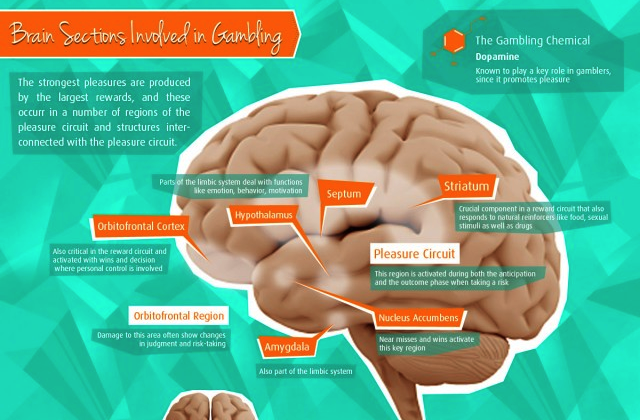Understanding the psychology of gambling reveals much more than the simple act of placing a bet. It delves into the complex web of gambling emotions and cognitive biases that shape decision-making at the gaming table or online. Gambling behavior analysis shows how factors like stress, excitement, and even frustration can dramatically influence outcomes and drive the notorious tilt gambling phenomenon. By grasping these psychological undercurrents, gamblers can implement responsible gambling strategies that promote both enjoyment and financial safety. This introduction invites you to explore the intricate relationship between our minds and the games we play, shedding light on how awareness can transform the gambling experience.
The dynamics behind gambling psychology encompass a fascinating interplay of emotions and mental processes that govern our betting behaviors. Often framed as the emotional drivers of gambling, phenomena such as tilt often lead players to make impulsive and risky decisions. By analyzing cognitive biases inherent in gambling, we uncover the subconscious patterns that compel individuals to take on more risk or chase losses. Understanding these concepts promotes better decision-making and encourages responsible gaming habits. Join us as we delve deeper into how these psychological insights shape the gambling landscape and equip players with strategies for enhanced awareness and control.
The Role of Cognitive Biases in Gambling Behavior
Cognitive biases play a significant role in shaping the gambling experiences of individuals. Gamblers often fall victim to cognitive distortions, like the illusion of control, where they believe they can influence outcomes that are purely based on chance. This leads to unwise betting choices, as players may misinterpret their luck or skills, believing they can consistently win. A good understanding of these cognitive biases—like overconfidence or loss aversion—can turn the tide for many gamblers, allowing them to make more informed decisions during their betting journeys.
Furthermore, the impact of these biases extends beyond individual choices and can significantly affect gambling behavior on a larger scale. For instance, players might engage in patterns of chasing losses due to loss aversion, a tendency to avoid losses more fiercely than seeking equivalent gains. This can spiral into a cycle of increased betting that ultimately leads to greater financial distress. Recognizing these biases not only fosters personal accountability among gamblers but also aids in the development of responsible gambling strategies that prioritize well-being.
Emotional Regulation Techniques for Better Gambling Outcomes
Managing emotions while gambling is crucial in ensuring a more positive experience. Players often encounter situations that trigger strong feelings like excitement, frustration, or anxiety, especially during volatile games or high-stakes situations. Emotional regulation strategies, such as mindfulness practices, can greatly help individuals maintain composure and clarity of thought while gambling. Mindfulness encourages gamblers to acknowledge their feelings without letting them dictate their betting actions, thus reducing the chances of falling into the ’tilt’ phenomenon.
In addition to mindfulness, setting clear goals serves as a cornerstone of responsible gambling strategies. By defining both time and financial limits, gamblers create a framework for their gaming sessions that promotes better emotional control and prevents impulsive behavior. When players adhere to established goals, they can focus on enjoying the game rather than succumbing to emotional pressures. Coupling goal-setting with regular self-assessment of gambling patterns also enriches the understanding of one’s own psychological tendencies, paving the way for healthier, more sustainable gambling habits.
Frequently Asked Questions
What role do cognitive biases play in gambling behavior analysis?
Cognitive biases significantly impact gambling behavior analysis by steering players toward irrational decisions. For instance, biases like the overconfidence bias might cause gamblers to overestimate their luck or skills, resulting in impulsive bets. Additionally, loss aversion tendencies can lead to chasing losses, further complicating their gambling strategies. Recognizing these biases allows gamblers to adopt responsible gambling strategies, ultimately improving their decision-making and outcomes.
How does the tilt gambling phenomenon affect a player’s emotional responses during gaming?
The tilt gambling phenomenon profoundly influences a player’s emotional responses, often leading to heightened frustration or over-excitement. When a gambler goes on tilt, their judgment becomes clouded, prompting poor betting choices and increased risks. To combat this, understanding the tilt phenomenon enables players to develop better emotional regulation strategies, such as taking breaks or practicing mindfulness, which can lead to more controlled and responsible gambling behaviors.
| Key Aspect | Description |
|---|---|
| Emotional Responses | Understanding emotional swings like ’tilt’ and their impact on decision-making. |
| Gambling Disorder Statistics | 1% to 4% of U.S. adults are impacted by gambling disorders, emphasizing the need for psychological insights. |
| Cognitive Biases | Common biases include overconfidence and loss aversion that affect gambling choices. |
| Emotional Regulation Strategies | Techniques such as mindfulness, goal setting, and seeking support to manage emotions. |
Summary
The psychology of gambling reveals a complex interplay between emotional and cognitive factors that can affect how individuals approach gaming. Understanding these elements is vital for both leisure players and those facing challenges in gambling. By recognizing emotions like ’tilt’ and cognitive biases such as overconfidence and loss aversion, gamblers can make more informed decisions. Furthermore, implementing emotional regulation strategies will help in mitigating risks and promoting responsible gaming. This comprehensive view of the psychology of gambling not only aims to enhance the gaming experience but also to foster a more sustainable and responsible approach to gambling.
